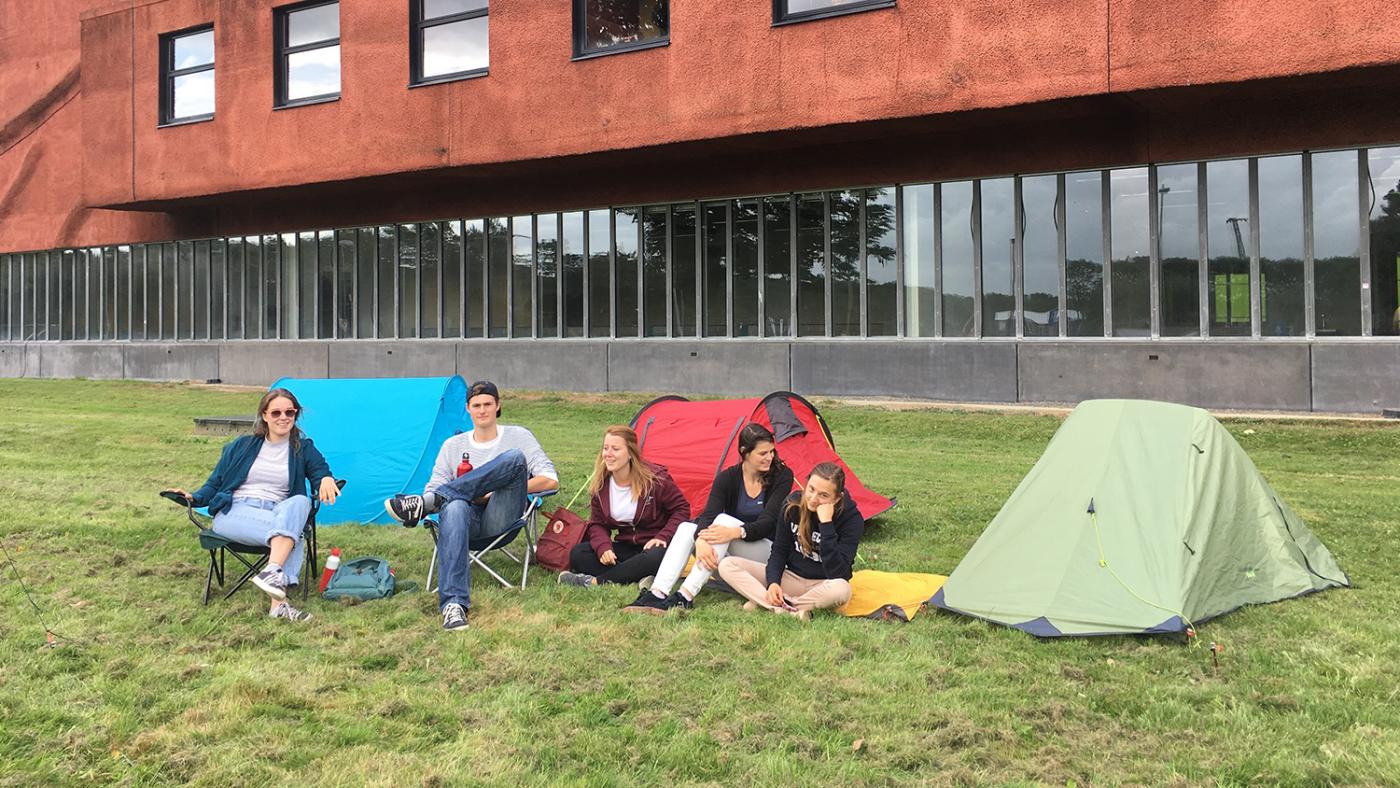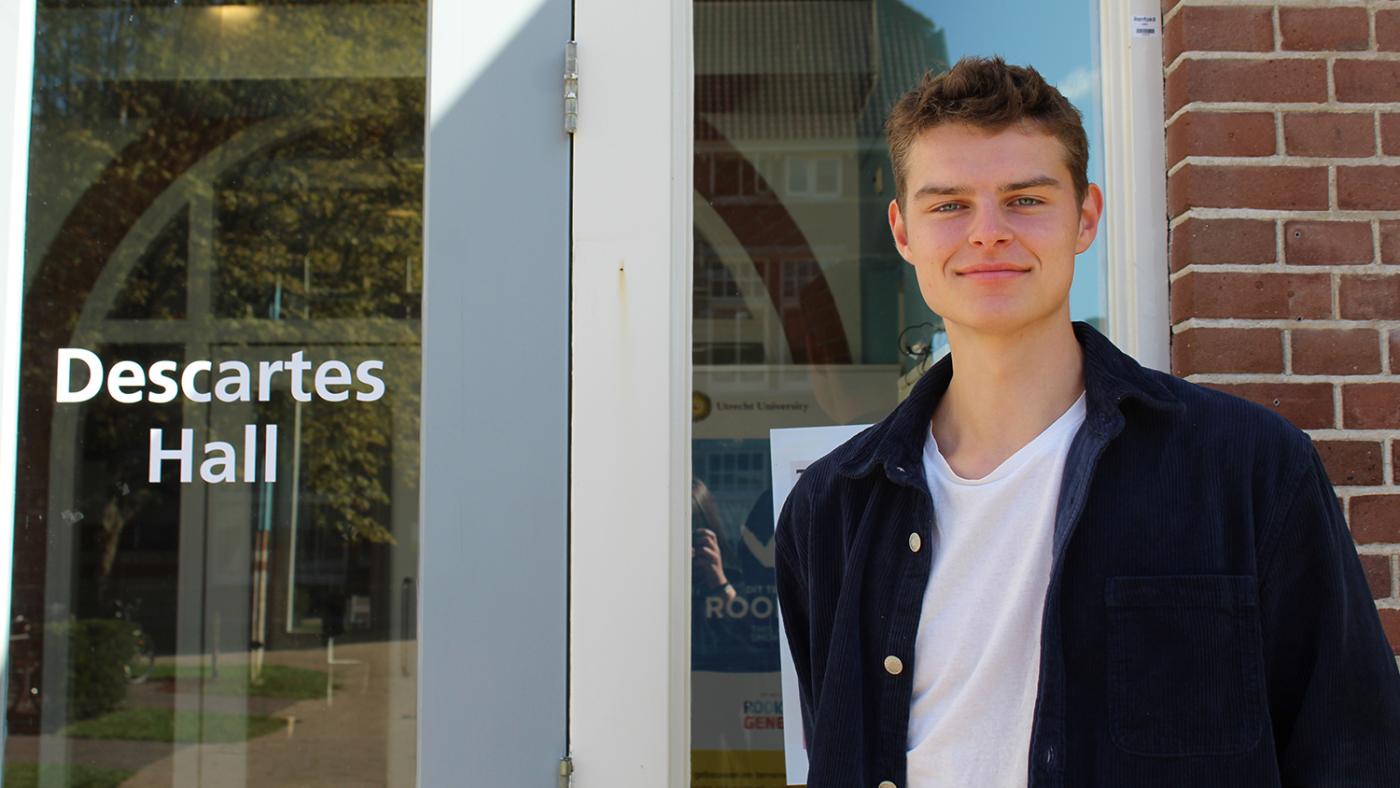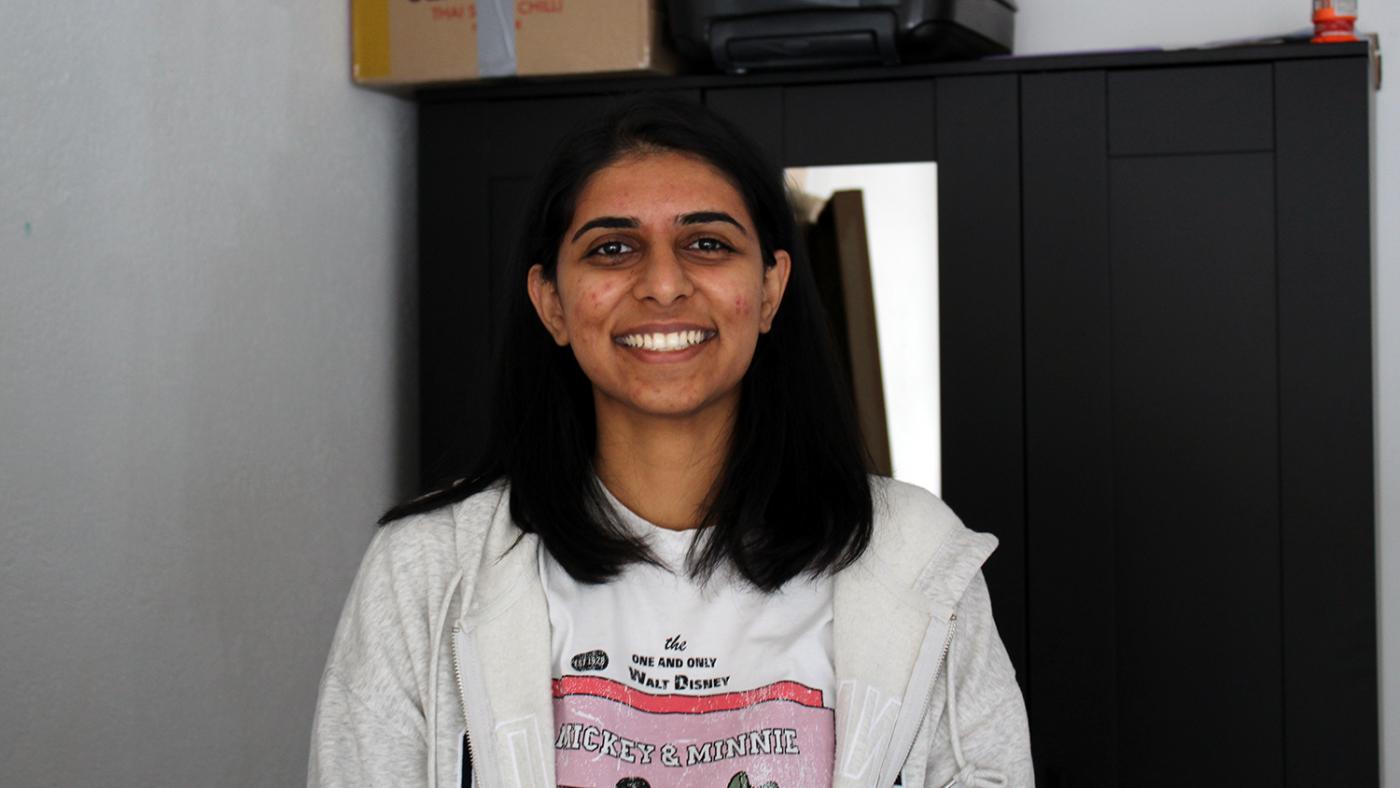Not just freshers
Housing stress is far from over for senior students

For many students, the housing crisis is not just a temporary inconvenience typical of their first year of studies, but rather something that follows them until graduation. I, a third-year Media and Culture student from Italy, am a good example. For my first year, I managed to find accommodation through the SSH Short stay programme: when the time came to click on the available rooms faster than anyone else, I armed myself and my family with laptops to score a room. The issue with the short stay programme is that, as the name suggests, the housing security it provides is short-lived. So, after one year, there I was, homeless again.
First, I moved in with a friend whose roommate was on exchange for a couple of months. When that roommate came back, I spent two weeks couch-surfing before moving into a tiny studio with exorbitant rent in a brand-new student complex, for lack of a better option. Then, after one month there, my friend’s parents bought an extra house in Utrecht (not sure how in this economy) and offered me a room. I would have to wait two months to move in, however, until the renovation works were done. Giving up my overpriced studio was a no-brainer: rent was low, my roommates were lovely and the location was amazing. But, as it turns out, renovating a house in less than two months is nothing but a fantasy. It took two more months of living with no internet connection, little to no water pressure, and no functioning stove – not to mention workmen coming in and out of the house every other day – before I could finally call that place home.
For students in their second or third year of studies, struggling with accommodation can pose an even bigger problem than for first-years: as the letter sent by Utrecht University in June suggested, first-year students have the option to reconsider their enrolment or delay their studies if they are not able to find a room. But second and third-year students need to be present in the country if they want to continue their studies or finish them on time. The personal connections built during the first year can help but are not a sure-fire lifesaver. Meanwhile, all the uncertainty and the moving around negatively affect both their academic performance and their mental health.

Paul in front of Descartes Hall. Photo: DUB
“Even in class, I was constantly checking my phone”
To see how, look no further than Paul, a second-year PPE student from Germany. “I couldn’t focus: even in class I was constantly checking my phone to see if I got any updates on my applications or if there were any new ads. Finding housing was the only thing on my mind,” he says. Finding housing in Utrecht has been a challenge for him since day one: “I couldn’t find anything in time for the start of classes in the first year, so I took my mom’s car and a three-person tent and drove to a campsite in Utrecht. All the rooms I saw on Facebook and Kamernet were either not available to internationals or only open to girls, so I didn’t really have a choice.”
Paul stayed in the tent for one and a half months: “I couldn’t stand in it, but it was alright.” Living at a campsite came with a variety of problems, starting with the typical Dutch weather: “when I arrived in September, it was beautiful camping weather, I got an outside shower and a bike and it was nice and warm. In October it started raining and I would come home and the tent would be swept over and wet inside. That was pretty bad.” Studying inside the tent was also a problem since there was no electricity: “I got to know all the rules about how long I could stay in the library and in the study halls. I became friends with the security guards, so they would let me stay a couple of hours longer to study more. I passed all my classes in the first year, but I was distracted a lot.”
After one and a half months, Paul managed to get a room on campus through SSH, but the contract was only valid for six months, so he had to move to an expensive studio in the Science Park for the rest of the year. At the beginning of his second year, when his studio lease expired, the problems started again: “I still haven’t found anything permanent, so I’m now living in a friend’s house in Rotterdam. I’m looking for an apartment in Utrecht with two friends and it’s incredibly hard to find an entire apartment, even harder than finding a single room. If we don’t have anything within a month, we are going to split up and look individually, but I would really like to live with them.” Living in Rotterdam means Paul has to endure a daily commute to class: “I have classes every day, and a round-trip to Rotterdam costs 25 euros per day, which amounts to around 550 per month. So it’s kind of like paying rent”. Unlike Dutch students, European students cannot request a student discount on their transportation card unless they can declare that they work at least 56 hours per month. “Commuting definitely isn’t easy. It takes a lot of time and energy away from studying and social activities.”

Riya in her room. Photo: DUB
“It was summer break but mentally I was still in Utrecht, stressed about housing”
Speaking of social activities, having half of your mind preoccupied with housing can take away from one’s vacation time as well. Riya, a third-year Economics student from India, couldn’t stop thinking about her living situation even when she was visiting her parents in the summer. “Mentally I was still in Utrecht, stressed about housing”. She followed classes from her home country in the first year due to the pandemic, but moved to Utrecht in the second year, living in a studio on campus with a 12-month lease. Once her contract expired, finding a new home took much longer than expected. “Almost all ads for rooms had ‘no internationals’ or ‘Dutch-speaking only’ written at the beginning. It was very discouraging. I had originally planned to have accommodation by the start of summer, but I couldn’t find anything in time. Everywhere I looked was either fully booked or already had hundreds of applicants,” she says.
Since she didn’t find accommodation before going back home for the summer, she had to move all her belongings to different friends’ houses, which required careful planning and expensive Uber rides in the middle of exams. “It really did affect my studies: I failed my Management and Accounting exam at the end of my second year because I was so stressed about moving my stuff and I couldn’t find anywhere to live.” Thankfully, a room in her friend’s house in Kanaleneiland became free in August. She got the room after attending an online hospi night, where applicants get to know the current tenants. She is currently settling in and buying cheap appliances from IKEA, as the room unfortunately came unfurnished.
“It feels like it’s impossible to find anything”
It might look as though Dutch students have it easy when one sees the words “Dutch-speaking only” and “no internationals” on the ads. But even people with Dutch nationality are struggling. Dieudonneè, a fourth-year student in Politics, Philisophy & Economics, had to move out of her shared house in Utrecht at the beginning of summer because her contract expired. She is now looking for a room to share with her girlfriend anywhere in Utrecht or Amsterdam, but things are looking bleak. “Most places just refuse you right away: they don’t accept your parents as guarantors and I don’t make enough money to show that I can afford the room on my own,” she says. “Since we want to share a single room, our budget is almost a thousand euros. But, even with that much money, landlords still ask that you make at least three times the rent. That’s simply not feasible for a student.”
She is now living at her parents’ house in a small village near Alkmaar with her girlfriend and their cat, but travelling to Utrecht for her classes takes almost two hours by public transport: “I’m so glad my parents are letting me and my girlfriend stay here, but it’s really hard to see my friends in Utrecht. I’m going a little bit insane in this tiny village with nothing to do,” she confesses. Like Paul, Riya and me, not having her own place is affecting her studies: “I am living out of boxes right now, so I keep misplacing the things I need. It takes so much time, energy, and money to look for rooms and go to viewings that studying stops being a priority.”

Cassandra in her new room. Photo: DUB
“The landlord told us he would make our lives miserable”
Even when you find a room in a nice location, for a reasonable price, and long-enough contract, all your efforts can go down the drain if you have terrible roommates, terrible neighbours, or a terrible landlord. Cassandra, a third-year Media and Culture student from Germany, struggled with the latter. Finding a room in her first year didn’t take long, and she moved into a shared house in July 2020. The landlord seemed a bit weird, but everything went well during the first year. All of a sudden, in the second year, he became controlling and started harassing her and her five roommates, all girls: “he had a camera in the hallway for ‘safety’ reasons, but he started using it to monitor who came in and out of the house. He would send long messages about how the neighbours had told him we were having boys over and that wasn’t allowed.”
Cassandra and her roommates called the Rent Tribunal – an organisation that helps resolve issues between tenants and landlords – to address the situation. When the landlord found out about it, he took to threatening them. “He said he would let ‘bad men’ and ‘refugees’ into the house to scare us.” After he began entering the house unannounced, the girls decided to call the police, which only made him angrier. “He called me a Nazi and a child of Hitler because I’m from Germany, then he told us he would make our lives miserable if we didn’t stop bothering him and move out already.” After finally securing a new room, Cassandra hired a lawyer, who advised her to record everything that happened on the day she moved out. Still, the landlord managed to keep her roommate’s deposit, claiming that she caused a burn on the floor she swears didn’t exist.
“It really took a lot of energy from me. I wasn’t able to study because I was so worried about what he would do next.” Dealing with the constant verbal harassment also left her drained and anxious: “He would send us long, derogatory emails in the morning, and I would be so nervous the rest of the day that I couldn’t concentrate on anything else.” Needless to say, her studies were affected by that. Now that Cassandra has found new accommodation, she is much happier, but it took almost two years to find somewhere else to live: “I have a seven-square metre room now and the new house isn’t great, but at least I don’t have to worry about my lunatic landlord.”
As for me, listening to all these people makes me worry about my own situation. Now that I finally have an indefinite contract, I am scared to start the whole process again in less than a year, when I’ll start my Master’s degree in another Dutch city.